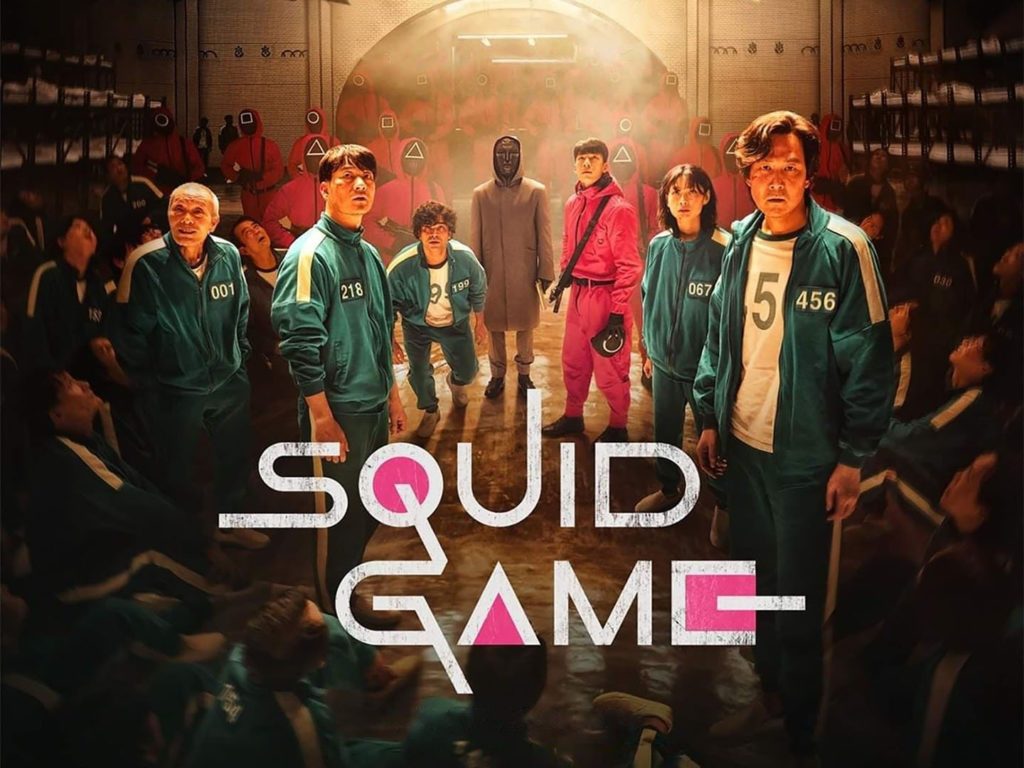By Evan Madden | | Staff Writer

The South Korean survival drama Squid Game is breaking records, becoming the most streamed show on Netflix in the UK and US. It’s no surprise to viewers of the show, since the nine episode series is perfect for binge-watching. In a short time, I bonded with the central characters, which kept me on the edge of my seat for the duration of my first viewing.
The series’ creator, Hwang Dong-hyuk, said that it took him six years to finish writing the first two episodes after he concieved the original idea for the series in 2008. At that time, he was living in a manga cafe in a dire financial situation. The premise of Squid Game is clearly inspired by this time in his life, since it follows a cast of characters plagued by overwhelming debt. Unable to make ends meet, they all volunteer to play a game for the chance to win a 45 billion won prize ($38 million). The 456 contestants quickly realize they will be forced to risk their lives and compete in a series of twisted life-or-death versions of classic Korean children’s games.
The protagonist, Seong Gi-hun, portrayed by Lee Jung-jae, is a gambling addict who is unable to financially support his daughter. Other main characters include an investor wanted for embezzling money, a North Korean defector hoping to retrieve her parents, and an immigrant worker hoping to provide for his family after being exploited by his employer. Each of them is forced to confront true desperation and question what they are willing to do to survive. The terrific cast makes you feel the weight of their emotions as this question stirs within them.
The series maintains constant tension, even during sequences that take place outside the confines of the games. Throughout this tension, it delivers a mix of heartfelt moments, comedy, and horror. The pacing of each game keeps you engaged whether it contains fast-paced action or an excruciatingly slow, tense task. The games are cleverly planned to put characters in physically and emotionally challenging situations.
The choice to utilize real sets with minimal CGI for the games pays off, as they set up surreal backdrops for the gruesome games. Creative camerawork showcases the vibrant set design, while the chilling soundtrack sets the tone for the series well.
Many members of the supporting cast also deliver outstanding performances and shine in their brief time on screen. The range of characters is entertaining and endearing, aside from a few awkward moments. The American actors who are introduced at one point were particularly cringeworthy and felt out of place.
One of the only disappointing moments in the series is a reveal towards the end of the season that is particularly obvious. It fell flat in comparison to some of the other dramatic turns in the final episodes. Not all of the character arcs end on a satisfying note, and the questions left unanswered at the conclusion will leave fans wanting a second season.
For those interested in gripping psychological drama and not deterred by graphic violence, Squid Game is a must watch. There is an English dub of the show, but for viewers who don’t mind reading subtitles, I would highly recommend watching the version with the original Korean cast. The series raises the bar for original streaming service content, and its worldwide success will hopefully encourage services to support talented international creators.
Sophomore Evan Madden is a Staff Writer. His email is emadden1@fandm.edu.
